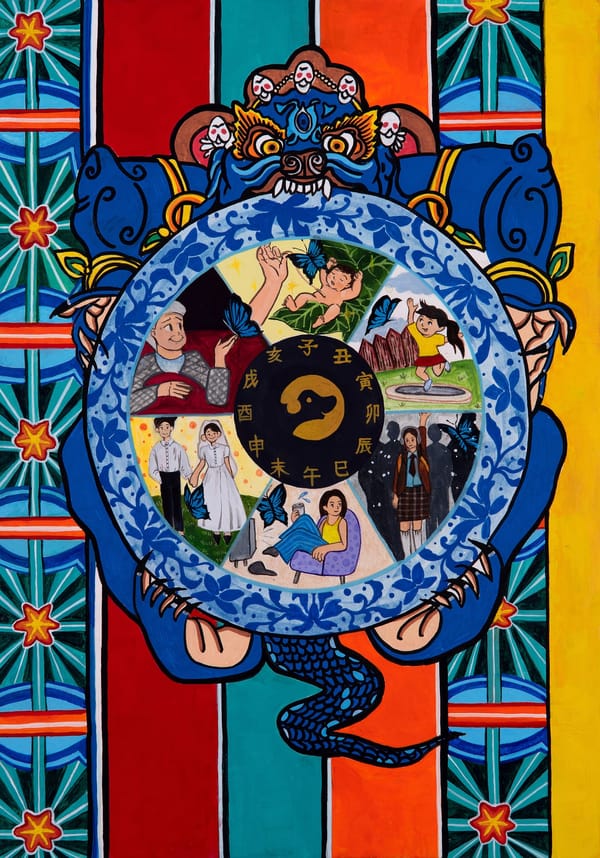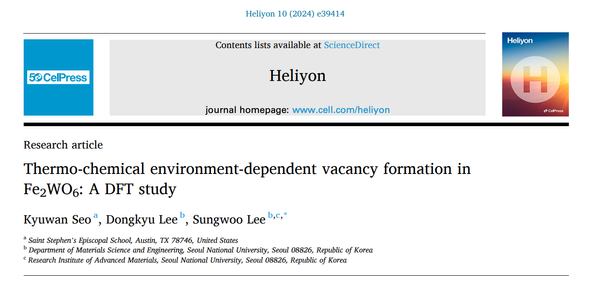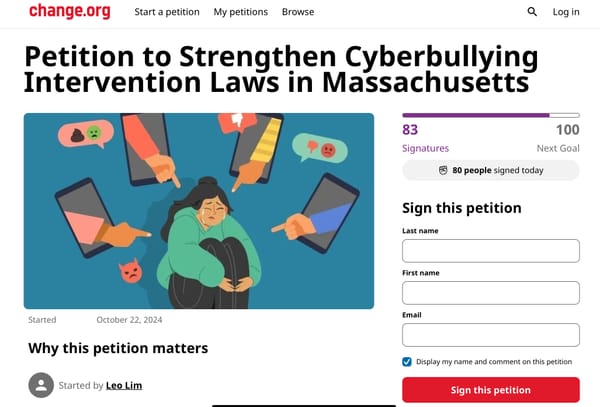Assessing Gerald Ford’s Pardon of Richard Nixon: Peace and Justice
On a lazy Sunday noon in 1974, President Gerald Ford, a month into his presidency, changed the course of modern political history by announcing a “full, free, and absolute” pardon to his resigned predecessor Richard Nixon for the crimes that he “[had] committed or may have committed or taken part in” throughout his presidency. The unexpected introduction of Proclamation 4311 returned the nation to the chaos of the Watergate scandal, placing a halt on the gradual restoration of the people’s trust in government. The pardon decisively prompted the end of Ford’s political career, heavily contributing to his loss in the 1976 presidential election, and marked the end of an era of institutional confidence led by the New Deal and wartime governments. Yet in retrospect, his decision did more healing for the nation than harm – although it limited the uncovering of the corruption that transpired, the pardon of Richard Nixon was the correct decision considering the peace of the nation and the manifestation of justice.
To assess Ford’s decision, an examination of the Watergate scandal from which the distrust in government stemmed is imperative. The convincing American victory in World War II and the peaceful decade of the 1950’s led by President Eisenhower created a layer of invincibility over the nation both domestically and internationally. But the internal battle for racial justice and the external involvement in the Vietnam War planted the seeds for public disillusionment with the government. The government’s foreign policy decisions, particularly President Lyndon B. Johnson’s excessive involvement with the Vietnam War, were being questioned to a degree such that he would not run for another term. In 1968, Richard Nixon, taking advantage of the incumbent’s lack of popularity, was elected to office based on the support of the “silent majority.” With policies such as détente and Vietnamization, Nixon led an active presidency, and encountering an inexperienced and radical opponent in George McGovern in the 1972 election, he won by a landslide, acquiring all but 17 electoral votes (Danver). This victory, however, was short-lived, as the revelation of a burglary of the Democratic National Committee’s Watergate office during the campaign heralded a series of investigations that would lead to Nixon’s demise. The burglary, executed by men involved with the Nixon reelection committee, was discovered prior to the election as intentional efforts of political sabotage. Nixon’s response of attempting to hinder the investigations, such as firing the special prosecutor in the Saturday Night Massacre or refusing to hand over recorded tapes of conversations in the Oval Office, led to the House Judiciary Committee recommending three articles of impeachment in obstruction of justice, abuse of power, and contempt of Congress. As his impeachment and conviction became apparent, Nixon, leaving a statement of his loss of congressional support, resigned from office on August 8, 1974 (“Downfall of a President”). Exactly a month later, through Proclamation 4311, a pardon would be issued.
While the issuance itself would be a surprise coming from the Ford administration, the idea of pardoning Nixon was not. From the beginning of his presidency, Ford was questioned about his stance on Watergate and the possibility of a pardon rather than his policies. But with the adamant anti-pardon stance of his press secretary Jerald terHorst, Nixon seemed to be on track towards a criminal trial, from which he could be sentenced to decades of prison (Cannon 375). The White House could not escape scrutiny from Watergate, and as his press conferences revealed, Ford realized the nation was unable to transition towards progression and focus on the people themselves. Thus, despite the adamant opposition of his cabinet staff and terHorst, who resigned the day of the pardon, Ford offered the absolute pardon before Nixon was ever indicted. While Ford requested Nixon for a statement of contrition in exchange for the pardon, Nixon simply issued a statement of regret, with his only wrongdoings being “not acting more decisively and forthrightly in dealing with Watergate” (Nixon). The abrupt and preliminary timing of the pardon, along with the placement of public anger towards Nixon in him seemingly escaping punishment without consequences, developed the appropriateness of the pardon into a political debate.
Although the immediate public reaction deemed otherwise, Ford’s pardon of Richard Nixon ultimately aided the nation to transition from Watergate towards political recovery and a focus on the people rather than a select criminal group. As Ford had predicted, the pardon prompted outrage from the public and the media; yet, unlike his prediction, peace did not follow the initial wave of contempt. His cultivated image of the humble, transparent president and an initial Gallup approval poll of 70 percent were immediately lost, dropping 22 percent the next day (Jones). The New York Times edition on the next day heavily criticized all aspects of Ford’s decision: “In a time when the nation has been repeatedly dismayed by so many acts of corruption, intrigue and deceit, President Ford has signally failed to provide courageous and moral leadership” (“The Failure”). Instead of a facilitating figure, Ford was perceived as a hypocrite and a co-conspirator in Watergate. The widespread distrust from Watergate had severe implications on the title of president, particularly with the pardon being interpreted by some as the use of elected power as a means to shield injustice. In a critical piece against Ford’s pardon, NYU professor Terence P. Moran wrote of the necessity to punish the presidency itself after Nixon’s claims that his actions of obscuring justice were in favor of the nation, not his personal interests – he then ironically wrote of punishing the successor Gerald Ford by sending him to prison or of the whole electorate who had previously voted for Nixon (Moran 609). Watergate had not only thrown the nation into political disarray but also threatened the essence of the presidency, and the pardon initially seemed as worsening the status quo. But from a broader range of perspective, the pardon was the only method through which the nation could truly move on. For one, a fair trial would have taken years, if not ever, due to the tremendous amount of negative media attention that skewed a potential jury’s opinion regarding Nixon. Even special prosecutor Leon Jaworski mentioned such concerns to Ford and understood the lack of precedence of a trial in this magnitude, stating that Nixon deserved to be “innocent in the eyes of the law until proven guilty according to judicial process” (Rozell 131). This media attention on the potentially numerous iterations of the Nixon trial would have affected presidencies beyond simply Ford’s. And while not as promptly as Ford may have expected, the nation ultimately could transition from Watergate. A Gallup poll taken in two decades after his presidency indicated a public approval rating of 60% regarding the pardon, compared to the 35% directly following September 8 (Jones). In 2001, Ford would receive the John F. Kennedy Profile in Courage Award, chosen from a bipartisan panel in honor of his decision to grant the pardon. Senator Edward Kennedy, who was one of the members of Congress heavily opposed to the pardon at the time, remarked that “his courage and dedication to our country made it possible for us to begin the process of healing and put the tragedy of Watergate behind us” (Kennedy). The reconciliation among politicians indicates that the pardon indeed allowed the nation to recuperate from the fallout in 1974 – the Speaker of the House during his presidency and of the opposite party Tip O’Neill, paid tribute to Ford by stating that “God has been good to America, especially during difficult times. At the time of the Civil War, he gave us Abraham Lincoln. And at the time of Watergate, he gave us Gerald Ford—the right man at the right time who was able to put our nation back together again” (“Gerald R. Ford Jr. Statue”).
Another crucial aspect of the debate is the legality and the protection of justice through this pardon. Despite legal criticisms regarding the preliminary granting of the pardon and its extent, the pardon was fully constitutional and ensured the most practical method through which justice could be granted to Nixon. Article II, Section 2, Clause 1 of the Constitution of the United States asserts that “[the president] shall have Power to grant Reprieves and Pardons for Offences against the United States, except in Cases of Impeachment.” The final part, to which the pardoning power is restricted only by matters of impeachment, spurs dispute to whether Nixon, whose proof of criminality would have led to impeachment, could have been pardoned by the president. However, this viewpoint is flawed in that the impeachment clause can only be applied to an acting president; since the pardon occurred following the resignation, the further investigation prevented by the pardon would not have been part of the impeachment process. Other points of argument, such as the vagueness of the pardon in which Nixon’s specific offense is not mentioned, still favor Ford’s decision, as an unconditional pardon encompasses more than a single offense, and a list of offenses may have left room for dispute as to whether one had been omitted. Such legal concerns have been addressed once in a legal setting – the case of Murphy v. Ford, in which F. Gregory Murphy, an attorney from Michigan, claimed that the pardon should be void, demonstrates that the pardon was completely valid: Justice Field of the Western Michigan District Court stated that “[the power to pardon] extends to every offense known to the law, and may be exercised at any time after its commission, either before legal proceedings are taken, or during their pendency, or after conviction and judgment . . . . The benign prerogative of mercy reposed in [the President] cannot be fettered by any legislative restrictions,” essentially deeming the pardon power unlimited and dismissing the case. Beyond simply fitting the rules, the pardon demonstrates justice in that it was less of a pardon for the individual but for the country; in fact, in the case Burdick v. United States from which Ford found justification for his decision, a clear distinction is made between amnesty and pardon: “the former overlooks the offense, and is usually addressed to crimes against the sovereignty of the state and political offenses, the latter remits punishment and condones infractions of the peace of the state.” The pardon, in other words, “carries an imputation of guilt and acceptance of a confession of it.” Unlike the various accusations, such as that of a potential secret deal between Nixon and Ford for a presidency and a pardon, the presidential recognition of guilt and the loss of the presidential position were sufficient punishment in serving justice to Richard Nixon.
With the surprisingly close 2%p deficit, the 1976 presidential election deemed the former Georgian Governor Jimmy Carter to be the next President of the United States (The American Presidency Project). Gerald Ford, a shadow of Watergate and a lame duck extraordinarily early into his presidency, was now gone, and a new era would approach. However, the decision that truly brought the new era was Ford’s pardon of Richard Nixon, planting the seeds for the nation to heal and ensuring that both justice and peace would be kept from the tumultuous proceedings of the scandal. Under the previous Trump administration, the power of pardon has been put into question yet again, concerning its extent and potential abuse. Certainly for many presidential pardons, political preference and personal gains have been a factor; but for Ford, who sacrificed the seat of the influential American presidency, they were not. A president never elected to office, the first vice president becoming president to not serve a full term, Gerald Ford was the average president, one who will not be remembered. But by placing the relationship between the people and the government, the heart of American democracy, Ford, with the pardon of Richard Nixon, was no less American than any other.
Works Cited
"The American Presidency Project." UC Santa Barbara, www.presidency.ucsb.edu/statistics/elections/1976.
"Burdick v. United States." Justia, supreme.justia.com/cases/federal/us/236/79/.
Cannon, James M. Time and Chance : Gerald Ford's Appointment with History. New York City, HarperCollins, 1994.
Danver, Steven L. "Nixon Presidency." American History, ABC-CLIO, 2024, americanhistory.abc-clio.com/Topics/Display/1879614?cid=41&sid=1879614. Accessed 4 Apr. 2024.
"Downfall of a President." American History, ABC-CLIO, 2024, americanhistory.abc-clio.com/Topics/Display/1187558?cid=41&sid=1187558. Accessed 4 Apr. 2024.
"The Failure of Mr. Ford." The New York Times, 9 Sept. 1974, www.nytimes.com/1974/09/09/archives/the-failure-of-mr-ford.html. Accessed 11 Apr. 2024.
"Gerald R. Ford Jr. Statue." Architect of the Captiol, www.aoc.gov/explore-capitol-campus/art/gerald-r-ford-jr-statue.
Jones, Jeffrey M. Gerald Ford Retrospective. Gallup, news.gallup.com/poll/23995/gerald-ford-retrospective.aspx. Accessed 11 Apr. 2024.
Kennedy, Edward M. "Remarks by Senator Edward M. Kennedy." John F. Kennedy Presidential Library and Museum, 21 May 2001, www.jfklibrary.org/events-and-awards/profile-in-courage-award/award-recipients/president-gerald-ford-2001. Accessed 11 Apr. 2024.
Moran, Terence P. "Public Doublespeak: On Politics and Pardons." College English, vol. 36, no. 5, 1975, pp. 605-09. JSTOR, https://doi.org/10.2307/374835. Accessed 21 Mar. 2024.
"Murphy v. Ford." Justia, law.justia.com/cases/federal/district-courts/FSupp/390/1372/1966699/.
The New York Times. 9 Sept. 1974. The New York Times, timesmachine.nytimes.com/timesmachine/1974/09/09/issue.html. Accessed 21 Mar. 2024.
Nixon, Richard. "The Statement by Nixon." The New York Times Archive. The New York Times, www.nytimes.com/1974/09/09/archives/the-statement-by-nixon-pr.html. Accessed 11 Apr. 2024.
Rozell, Mark J. "President Ford's Pardon of Richard M. Nixon: Constitutional and Political Considerations." Presidential Studies Quarterly, vol. 24, no. 1, 1994, pp. 121–37. JSTOR, http://www.jstor.org/stable/27551198. Accessed 24 Apr. 2024.
United States, Executive Office of the President [Gerald Ford]. Proclamation 4311. Code of Federal Regulations, vol. 3. ABC-CLIO eBook Collection.
US Constitution. Art. II, sec. 2, cl. 1.


